ALERT They Are Preparing Your Mind For 2030 PART 2
There's A War On For Your Mind
It’s the globalists’ doorway into the minds of millions.
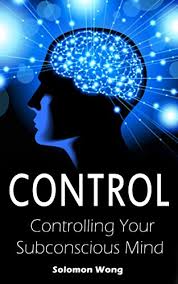

ALERT: 2030 Psychological Agenda – Obedience Training for PreK-Adults Already Global with Billions in Funding for Full Control – Part 2: Programming
Much like the world of eugenics, changing their phrasing each decade to disguise their true intentions while carrying out the same agenda, and glamouring it up with each change – the world of education is much the same. Various “mental health” and “behavioral” programs in schools are all leading down the same path, they just keep repackaging their PR campaign to make it more palatable to parents and policymakers. But this one is the doozy – it’s the globalists’ doorway into the minds of millions.
For decades they’ve been indoctrinating children, only now, they are going all in with the entire family and community for a full blown indoctrination, obedience training system, whereby the parents assist with the brainwashing of their own children, and they are stepping it up to incorporate virtual and augmented reality to ensure they have all control mechanisms in place. In part 1: Introduction, it explained what this overall agenda is about. It is vital to read part 1 before jumping into part 2, as it explains how this is a global obedience training agenda for the entire population and is already operating in 110 countries.
Programming The “Whole Child” and “Whole Family” Through Obedience Training
There is a program that has billions of dollars pouring into it while everyone is focused on CRT and other agendas. That program is being used as the doorway to instill obedience training through children, families, communities, and businesses. They have managed to grow this beast so large over the past five years with few realizing just how big it is. That program is called “Social and Emotional Learning” (SEL), with language used to “SELL” parents on the mental health and wellbeing of their children in a time where children are desperately struggling due to the manufactured Covid mandates and restrictions. What most people are missing, who are aware of SEL, is the fact that it is the basis for a complete mind control system, soon to be equipped with virtual and augmented reality, that penetrates every area of everyone’s lives, while building a digital, global citizenship workforce with lifelong learning (obedience training). They are utilizing children and the school system as the doorway to implement their full agenda, including monitoring and tracking, data collection, digital identity, and a social score system. It is all part and parcel, and they are distracting people with the curriculum itself, which narrows the focus from the overall agenda.
For the globalists behind these agendas, school is about shaping minds, regulating emotions, controlling behaviors, instilling twisted beliefs, and building an obedient workforce, while sculpting identities equipped with digital identifiers and developing tech that infinitely seeds minds. As with all of the globalists’ 2030 agendas and beyond, the details are in the “fluff.” They no longer have to dress up the language because they’ve already long-conditioned the minds of parents and educators to believe that “regulating emotions” of a child are necessary and helpful, or that changing their “character qualities” to be more “adaptable” is a must, or keeping their “behaviors” in check will help their mental health. How about “building their identity” because it’s so important that children are able to establish their “own” identity while being programmed as to what that identity should really look like? That’s a good one. Their idea of “diversity, equity, and inclusion” means one mindset – theirs, and that is how one allegedly feels they “belong.”
Though the “Social and Emotional Learning” programs were first created by the Collaborative on Academics, Social, and Emotional Learning (CASEL) back in 1994, it took them years to purchase and prepare research material for policymakers to make it a global reality, and in 2016 millions were thrown into it, which quickly amassed into billions once Covid hit. They are now running these programs in over 110 countries, with a parallel agenda of “Spirituality in Education” worming its way into this obedience training.
Both of these programs were created by 4th generation cousins of the Rockefeller family. Eileen Rockefeller Growald is behind the Collaborative on Academics, Social, and Emotional Learning (CASEL), and Steven C. Rockefeller Sr. is behind the Collaborative on Spirituality in Education (CSE).
The Rockefellers have always played a major role in the education system. In 1903, John D. Rockefeller founded The General Education Board, a multi-million dollar foundation. Just two years later, Andrew Carnegie setup the Carnegie Foundation for the Advancement of Teaching. For years they provided the bulk of endowments received by all higher education institutions, which gave them great influence. Their good friend Bill Gates also holds a lot of influence over the education system. Aside from millions in funding to universities, Gates almost single-handedly funded and implemented Common Core standards in 2010, and has thrown millions into advancing and expanding the SEL program. Their good friend Bill Gates also holds a lot of influence over the education system. Aside from millions in funding to universities, Gates almost single-handedly funded and implemented Common Core standards in 2010 in the ultimate dumbing-down as a precursor to advancing the one-mind SEL obedience training program. Once again, they are all working together to make certain that SEL becomes the doorway to global obedience.
Both collaboratives are directly tied to the Fetzer Institute, who was Rockfeller’s largest donor in the 90s and is still a significant donor, according to Eileen Rockefeller. CSE is partnered with the Fetzer Institute in this dark, “spiritual” agenda involving rituals, authorized keepers, and bringing the deep spirit out. CASEL is funded by the Fetzer Institute, plus one of their co-founders is the former president of the institute, and may still be an advisor. On one of CASEL’s history pages they state that the idea of CASEL was born during a meeting at Fetzer, however, Eileen’s autobiography reveals a fluffier version of the story, as documented further down.
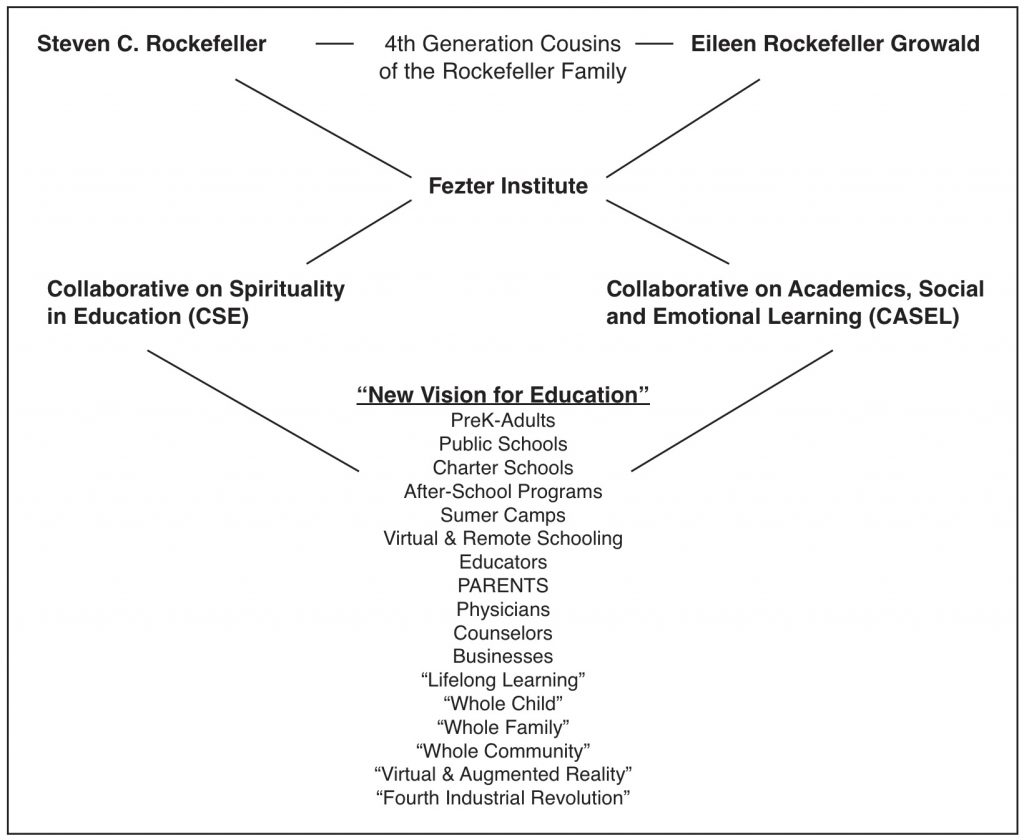
“We are on the verge of a global transformation. All we need is the right major crisis.” – David Rockefeller
On the surface, they paint a beautiful picture of allowing children to explore and find themselves to become successful adults, and Tim Shriver has a way of delivering a very convincing message to inform parents and educators that this is for the betterment of children and the whole family. However, when the same people that are running the Covid agenda, climate agenda, healthcare industry, and big tech are all behind these agendas and funding them, that should be the big red flag for everyone. That, along with the psychology and delivery methods being used in this obedience training, should make the hair on the back of anyone’s neck stand on end. Furthermore, Shriver’s organization “Unite” is also involved with the Covid agenda, and created a Covid Collaborative which hosted Dr. Anthony Fauci for a fireside chat.
As covered in the introduction of this series, their aim is to embed this structure of obedience training in school, after-school programs, summer camps, virtual and remote schools, and in the home, community, and through workforce development for businesses, in a “lifelong” journey of learning and obedience for global citizenship.
They want parents to believe that they will be “co-creators” of the SEL vision, plans, and practices, when in fact, they will be subjecting themselves to brainwashing and then training their own children in these practices, while evolving into a one mindset until every individual is erased and replaced through a dystopian virtual world.
They expect parents to incorporate SEL into their own parenting practices. “It helps children and adults understand and manage their emotions, set and achieve positive goals, feel and show empathy for others, establish and maintain positive relationships, and make responsible decisions.” In other words, they want to take CASEL’s psychological frameworks to train every child and adult how to be and how to think.
Meanwhile, all of this data is being monitored, tracked, and recorded for social scores, though they will phrase it as “monitoring improvement.” This is obedience training for their “global citizenship” workforce, and the next two chapters will reveal just how deep this really runs.
The examples they show in this video give the appearance of building a loving environment in much the same way the philanthropists and mainstream media insist that by getting a Covid jab you are saving lives and doing the right thing. It’s emotional speak, a luring in, to get everyone onto the same page, then integrating beliefs, values, and decision making that go completely against ones own beliefs and values. By having the parents be involved in the training of their children, they are gradually altering the minds of the parents, leading them to feel responsible for any outcomes, if they were to ever come out of the spell and recognize the trap they stepped into.
Through the use of SEL programs, many educators are using the “well being and acceptance” angle to promote critical race theory, gender fluidity, and other such agendas. Additionally, “mental health” during Covid is their “in” for SEL programs, when it comes to receiving state and federal funding. In 2019 alone, SEL was introduced into over 200 pieces of legislation. Let that sink in.
CASEL: The Creators of Social and Emotional Learning (SEL), and What It’s Really About
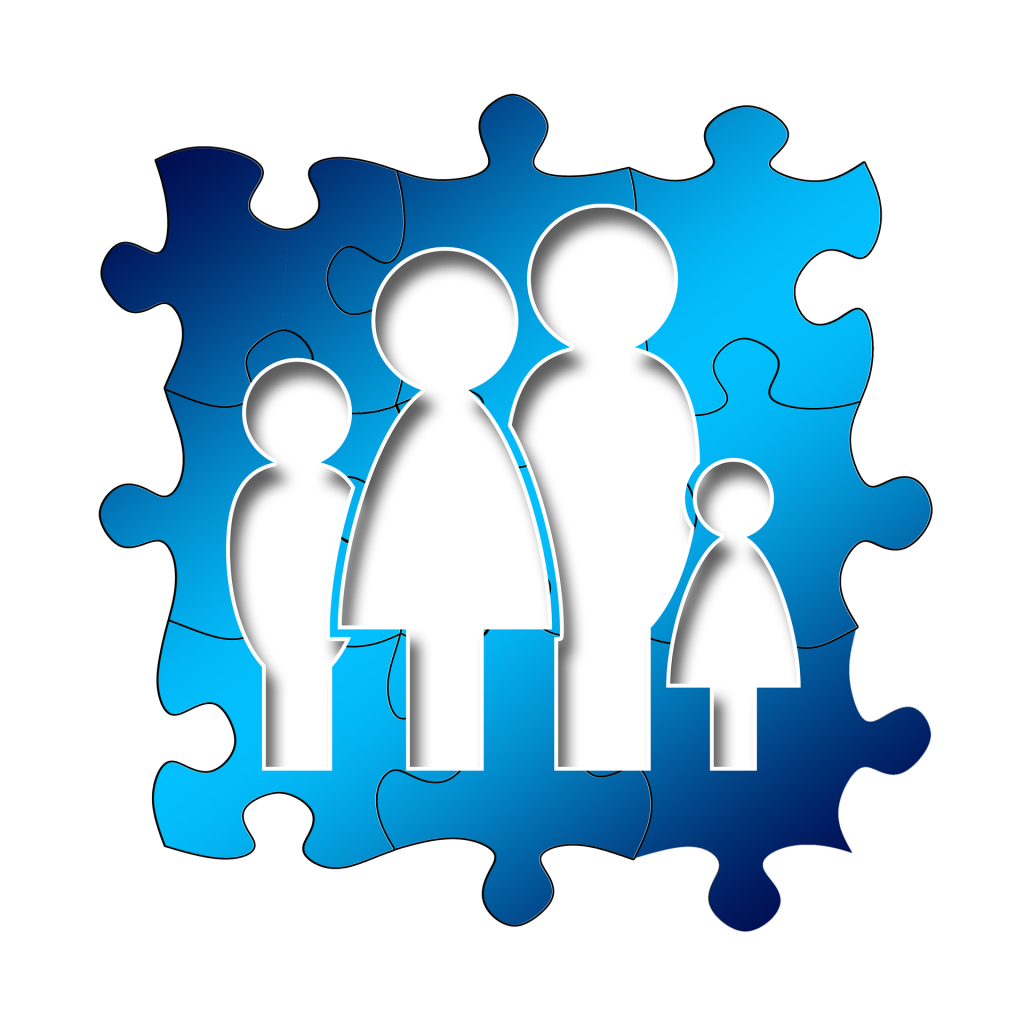
CASEL’s Co-Founders & History
Daniel Goleman – author of Emotional Intelligence
Mark T. Greenberg – Prevention Research Center for the Promotion of Human Development, Penn State University
Eileen Rockefeller Growald, Venture Philanthropist and daughter of David Rockefeller
Linda Lantieri, Inner Resilience Program
Timothy P. Shriver – Supervisor New Haven Public Schools
David Sluyter – Senior Advisor Fetzer Institute
Dr. Roger P. Weissberg – Professor of Psychology and Education, University of Illinois at Chicago (deceased 2021)
The identifications refer to the professional involvements of founders at the time when they met.
According to CASEL’s 2019 “History of the Framework,” they state that “Social and Emotional Learning” emerged from a meeting in 1994 hosted by the Fetzer Institute, where researchers, educators, and child advocates came together to discuss a concern about ineffective school programming. However, according to co-founder Eileen Rockefeller Growald’s 2013 autobiography, it tells a slightly different story.
In Eileen’s autobiography (page 238-242), Being A Rockefeller, Becoming Myself, she told the story about how CASEL came to be. In the late 1980’s, Daniel Goleman, then a New York Times correspondent who knew Eileen from her Institute for the Advancement of Health, asked if they could get together. He asked, “What do you think the next field will be?” Eileen said, “Emotional literacy. I believe schools should educate both the mind and the heart. My vision is a world where all children are included in the realm of learning, and every mind is accepted for its unique cognitive ability.” Whether that was her true intention or not, it most certainly is not what is happening today, or is the plan for their “Fourth Industrial Revolution.”
Goleman allegedly spent a few years researching and seeking out the best scientists and practitioners of the field, and asked Eileen to help convene some of them. In 1992, they organized a meeting at the Carnegie Corporation and at Commonweal in California. The Fetzer Institute helped fund these meetings. All of the original co-founders were in attendance as well as a few others, with the exception of Weissberg.
They began to work on creating a collective vision for the future of education, and were utilizing a sand tray, filling it with various trees, buildings, people, a bridge, and playgrounds, when Eileen exclaimed, “Look! There’s a castle on top of the hill beyond the bridge. Perhaps, if this becomes a new organization, we’ll name it Castle!“
The next afternoon, they split into groups to begin brainstorming “a vision for a new model in American education.” Eileen challenged her group to “consider how schools could train parents and teachers to have better social and emotional skills.” She asked, “Would life skills such as these have to be an added program, or could teachers train students as well as parents?” They all concurred that social and emotional skills were the missing piece in schools.
They spent the next year in meetings and conference calls, organized by Tim’s colleague, Mary Schwab-Stone from the Yale Child Study Center. Tim invited his other former colleague from Yale, Roger Weissberg, to join the group, as well as Maurice Elias, a psychology professor from Rutgers University. They all decided they needed to form an organization that would monitor the quality and training of programs in schools.
When coming up with a name for the organization, Eileen asked them all, “Remember that castle? Why should castle be spelled conventionally? Maybe it could be an acronym,” and CASEL was born and officially launched in 1994, based out of Chicago, IL.
It’s a nice story, but as journalist Alex Newman pointed out in his 2020 article on SEL, “social emotional learning” actually originated back in the 1920s by Soviet psychologist Lev Vygotsky, who studied how to effectively brainwash children. He pointed out that Vygotsky’s contributions in laying the foundations for SEL are widely acknowledged among practitioners, and even in the academic literature. “It is education which should play the central role in the transformation of man this road of conscious social formation of new generations, the basic form to alter the historical human type,” Vygotsky wrote in 1930 in the journal of the All-Union Association of Workers in Science and Technics for the Furthering of the Socialist Edification in the USSR.
“Some even believe we (the Rockefeller family) are part of a secret cabal working against the best interests of the United States, characterizing my family and me as ‘internationalists’ and of conspiring with others around the world to build a more integrated global political and economic structure – one world, if you will. If that’s the charge, I stand guilty, and I am proud of it.”. – David Rockefeller, Memoirs
How Far They’ve Come (with a little help from their friends)

The state of Illinois was the first state to adopt K-12 SEL standards, in 2004, which helped to set the standards for other states. At the time of Eileen publishing this book in 2013, she stated that SEL is in public schools in every state in America and in seventeen countries around the world. In Less than a decade later it is already being utilized by both CASEL and other organizations in over 110 countries.
CASEL is setup in 50 states pre-K and in 20 states K-12 in the U.S., according to their interactive map. It is very likely that the map on their site is not current and many more states are on board at K-12 levels. It should also be noted that with preschools, they use terms such as “guidelines,” “frameworks,” “competencies,” “learning goals,” and “learning standards” which all incorporate SEL frameworks but may not necessarily state “social and emotional learning.”
The footer notation on CASEL’s website states, “Our platform is made possible by Allstate Foundation.”
In 2011, CASEL launched the Collaborating Districts Initiative (CDI), in partnership with the NoVo Foundation, run by Peter Buffet (funded by father Warren Buffet), and the Rockefeller Philanthropy Advisors fund this initiative. This was also the year that the U.S. Department of Education granted the University of Virginia over $2.7 million to evaluate the efficacy of the WINGS for Kids after-school Social and Emotional Learning (SEL) program. This was the big push to produce evidence-based SEL studies to advance this through policymakers. A lot of funding and studies ensued, which is covered in subsequent chapters of this series.
In December, 2013 – The World Bank, in collaboration with the International Rescue Committee, published “Learning and Resilience: The Crucial Role of Social and Emotional Well-being in Contexts of Adversity” under their “Education Notes” series, with special emphasis on communities and families being involved in the learning process and delivery of SEL. They mention CASEL no less than 10 times. They later went on to produce a “Step by Step Toolkit Promoting SEL in Children and Teens” in 2018.
“Implementation should also ensure that communities and families are involved in the learning process and delivery of SEL, to provide more holistic support.”
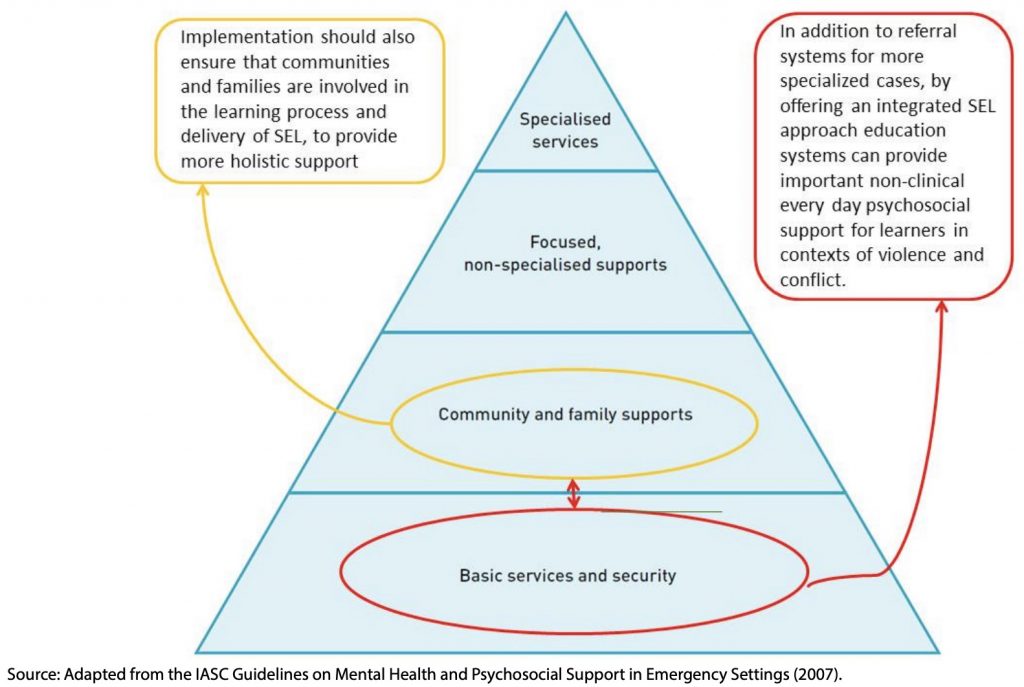
In 2016, they launched The Collaborating States Initiative to scale state-level SEL in collaboration with state education agencies. At the same time, the Bill & Melinda Gates Foundation and Carnegie Corporation funded the Aspen Institute to create the “National Commission on Social, Emotional, and Academic Development” (SEAD). More on this in the funding chapters. This was the big year when all stakeholders dug in deep and kicked things into high gear, as well as the WEF producing white papers on the future of the education system, which is covered in a subsequent chapter as well.
October 2018 – The Center to Improve Social and Emotional Learning and School Safety (CISELSS) was launched by WestEd in partnership with Transforming Education, CCSSO, and the RAND Corporation, and is funded by the U.S. Department of Education to provide support to states and districts in the implementation of SEL programs and practices.
In 2019, they were ready to rock n roll, so who other than Harvard to develop the frameworks for what schools should be implementing, and for policymakers to advance the agenda – funded by Bill Gates and others of course. More on this in the subsequent funding chapters.
In 2020, they launched the SEL and Workforce Initiative, “To integrate SEL and workforce development to prepare students for success as lifelong, engaged learners and effective contributors to the complex future they will inherit.” Their goal is to integrate SEL with workforce preparation across all 50 states. Companies such as Sysco, McKinsey, Microsoft, Delta, Apple, Boston Consulting Group, Blue Cross Blue Shield Association, Chrysler, Cigna, General Motors, and Hyatt, are just some of the companies getting behind this.
In 2020, they posted a webinar entitled ‘SEL As a Lever for Equity and Social Justice.’
October 19, 2021 – The U.S. Department of Education released “New Resources on Supporting Child and Student Social, Emotional, Behavioral and Mental Health during Covid-19 Era.” In the statement by Secretary Cardona, he stated “Our efforts as educators must go beyond literacy, math, history, science, and other core subjects to include helping students to build the social, emotional, and behavioral skills they will need to fully access and participate in learning and make the most of their potential and future opportunities,” and stressed that ARP ESSER alone has $122 billion available for these needs… and the siphoning of Covid relief funds began. More on this in the subsequent chapters on funding.
On December 9, 2021 CASEL welcomed their new CEO and President, Dr. Aaliyah A. Samuel, the Deputy Assistant Secretary, Local, State and National Engagement, appointed by the Biden administration in February 2021. Samuel’s position is effective on January 1, 2022. She is a senior fellow at the Center on the Developing Child Harvard University, former executive vice president of government affairs and partnerships for NWEA, adjunct professor at Carnegie Mellon University, director of the education division at National Governors Association, and former teacher and principal in Hillsborough County FL.
“We’re going to be dealing with many educational challenges over the next few years, and my firm belief is that an education that includes social and emotional learning is the great equalizer. As we move to a post-pandemic world, I am honored to lead an organization built on collaboration and dedicated to an agenda that ensures all students will thrive,” stated Samuel in the CASEL press release.
Samuel replaced former CEO Karen Niemi who was earning over $310K annually, according to their 2020 tax returns.
In addition to CASEL, Eileen Rockefeller Growald and her husband Paul founded the Growald Climate Fund in 2007. Prior to CASEL, Eileen was the founder of the Institute for the Advancement of Health in 1981, founding chair of the Rockefeller Philanthropy Advisors in 2000, and serves on the board of the David Rockefeller Fund.
CASEL’s Board Members
Timothy P. Shriver – Special Olympics
Stephen D. Arnold – Polaris Partners
Deborah S. Delisle – The Alliance for Excellent Education
Lawrence Aber – New York University
David Adams – The Urban Assembly
March Brackett – Yale Center for Emotional Intelligence
Catherine Bradshaw – University of Virginia
Paul Goren – Northwester University School of Education and Social Policy
Janice Jackson – Hope Chicago
Chi Kim – Pure Edge, Inc.
Kimberly Schnoert-Reichl – University of Illinois at Chicago
Shruti Sehra – New Profit, Inc.
Roger P. Weissberg – Professor of Psychology and Education, University of Illinois at Chicago (deceased 2021)
Andrea Wishom – Skywalker Properties
Mark T. Greenberg – Penn State University
Linda Darling-Hammond – Learning Policy Institute
Ann S. Nerad – Civic Leader
CASEL’s Funding
A detailed breakdown of some of the major funding from both private sector, and state and federal funding, are covered in subsequent chapters. Additionally, there is a large amount of funding going into other organizations supporting this agenda. There will be a recap list at the end of this series, documenting all organizations mentioned throughout, which exceeds 300. For a general idea of some of those involved in this masterpiece, CASEL’s website reads as follows:
CASEL’S funding has come from a variety of sources. These include the U.S. Department of Education, the U.S. Department of Health and Human Services, the National Institute of Mental Health, and the following foundations: the Fetzer Institute, the Ford Foundation, the Bill & Melinda Gates Foundation, the Joseph P. Kennedy Jr. Foundation, the Lucile Packard Foundation for Children’s Health, the Surdna Foundation, the University of Illinois at Chicago, the Randi and David Zussman Family Foundation, and the William T. Grant Foundation. Donors include: Eileen Rockefeller Growald, Irving B. Harris, the CASEL Board of Directors and staff, and others.
CASEL’s “Social and Emotional Learning” (SEL) Programming

“SEL is a process for helping children and even adults develop the fundamental skills for life effectiveness. SEL teaches the skills we all need to handle ourselves, our relationships, and our work, effectively and ethically.” – CASEL
The goal is to “embed” the SEL frameworks in school throughout all curriculums, and out of school. This is not a separate program, but is embedded in all that they do. CASEL has training consultants and technical assistance providers who work with K-12 schools and school districts, as well as professional development and coaching to districts.
Repetitive Buzzwords Used Throughout Most SEL Program Documentation
Diversity, Equity, Inclusion, Resilience, Adaptability, Values, Perspectives, Identity, Gender Identity, Race, Social Justice, Agreeableness, Character Qualities, Assimilation, Belonging, Prosocial Behaviors, Empathy, Emotional Regulation, Responsible Decision Making, Self-Awareness, Self-Management, Social Awareness, Relationship Skills, Safe Sexual Behaviors, School Climate, Global Citizenship, Digital Citizen, At Home, During Out-of-School Activities, Monitoring and Data Collection.
When clicking on one of CASEL’s 77 program guides, they have a section for “Home” that provides either “activities and resources for home” and/or a “family intervention component.”
According to CASEL, their SEL programming promotes and teaches the following:
• Positive development among children and youth, reduces problem behaviors, and improves academic performance, citizenship, and health-related behaviors.
• Increased time devoted to schoolwork and mastery of subject matter.
• An 11 percentile point increase in achievement test scores.
• An inclusive approach that covers the entire spectrum of social and emotional competencies that help children to be resilient and successful learners.
• “They are the skills that allow children to calm themselves when angry, make friends, resolve conflicts respectfully, and make ethical and safe choices.”
• They are implemented in a coordinated manner, school-wide, from preschool through high school. Lessons are reinforced in the classroom, during out-of-school activities, and at home.
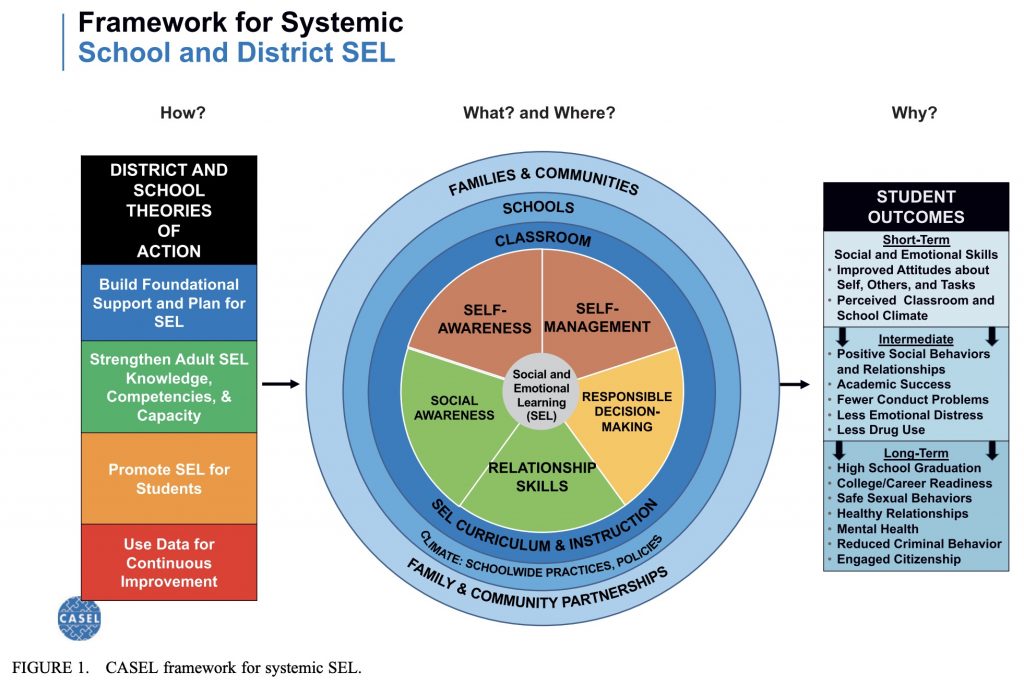
The NEW Transformative SEL for Equity
In 2019, they began refining a specific form of SEL implementation by “Developing and Refining Transformative SEL Toward Equity” to promote justice-oriented civic engagement, and transform inequitable settings. This involves students and adults co-learning to examine root causes of inequity, developing identity, integrates issues of race, class, and culture, reflecting on personal and social identities, examining prejudices and biases, interrogating social norms, disrupting and resisting inequities, and create belonging and engagement for all individuals. A perfect example of how “Transformative SEL” might be utilized in a school setting is reflective in an article in EdSurge, written by Open Circle Director Kamilah Drummond-Forrester, stating that if children “were taught how the concept of “whiteness” was created, they could be on the lookout for ways to disrupt and dismantle the toxic racism that robs us all of our full humanity.”
In late 2020, CASEL’s SEL program was beginning to receive some criticism for its fast rise, and by 2021, parents who were battling school boards over critical race theory were starting to recognize that SEL is a problem as well. Though most probably had no idea just how large this agenda truly is and that CRT pales in comparison because it’s all baked into it.
In response to criticism, Tim Shriver and Roger Weissberg of CASEL wrote an article in Phi Delta Kappan. They explained how widely SEL has been embraced by parents, schoolteachers, employers, and young people. Some key points they pointed out, are:
• 18 States have introduced K-12 SEL standards or competencies and 26 states have produced guidance documents or websites in support of SEL. (This doesn’t include all 50 states set for preschool, plus additional states added since this published a full year ago.)
• More than 200 pieces of legislation referencing SEL (or closely related language) were introduced in 2019 alone.
• The Federal Commission on School Safety, chaired by U.S. Secretary of Education Betsy DeVos (at the time of this publication), has described SEL as a key component of efforts to improve school climate and safety.
• They were aware of over 100 SEL-related frameworks being used with its own language to describe SEL, and how schools and educators could ultimately piggyback their own agendas onto it in the name of SEL.
• They reiterated how leaders have come to a strong consensus on the basic principles, including how “children and adults understand and manage their emotions, feel and show empathy for others, and make responsible decisions.“ They always include “adults” into this obedience training.
• They also reiterate how the implementation of SEL requires a systemic approach that will be integrated into every part of a student’s learning experience, in all classrooms, during all parts of the school day, and out-of-school time, and in partnership with families and communities.
• They believe that SEL can help children from all backgrounds to promote understanding, examine biases, reflect on and address the impact of racism, and build cross-cultural relationships
• They want the field to remain vigilant in protecting the quality of SEL programs, ensuring that SEL enhances academic teaching and learning and stays free of ideological agendas. Perhaps they should consider where all of their funding is coming from, because it certainly doesn’t align with that gesture.
• They stated, “We’ve never sought to exert ownership over the movement but only to coax it along.” Is this a true statement? In October 2018, they accepted a large grant in the amount of $550,000 from the Bill & Melinda Gates Foundation for the sole purpose of –
“To build capacity to enable CASEL to assume, support, and sustain the highest leverage role in the field of SEL in order to help make evidence-based SEL an integral part of every child’s education, preschool through high school.”
In 2021, some parents began protesting SEL programs in schools, right along with critical race theory (CRT). Some media sources twisted it to shame the parents during a time where children are depressed and possibly suicidal, while others called it out for what it is. Everyone from The Hill to the New York Post, NBC News, the Washington County Insider, South Bend Tribune, and Daily Mail all covered parents pushing back against SEL programs.
According to Emotional ABC, a 2019 top pick for learning by Gates-funded Common Sense Education (arm of Common Sense Media), they state that 4 out of 5 elementary schools across the U.S. and 110 countries are using their CASEL-aligned evidence-based SEL curriculum for in-class and online instruction.
According to researchers at Columbia University, in 2015 they determined that SEL programs have a strong return on investment (ROI) over long periods of time, stating that the programs generated an average return of $11 per $1 invested. Here is the full study which was funded by the NoVo Foundation, a foundation that is controlled by Peter Buffet with the initial donation from his father Warren of 350,000 shares (valued at $1 million) of Berkshire Hathaway.
Additional Documentation on CASEL’s SEL Program:
• Here is a sample of California’s social and emotional learning guiding principles, which includes adopting the “whole child” development as the goal of education, committing to equity, building capacity, partnering with families and communities, and to learn and improve, with diverse and inclusive leadership teams. They would like to expand: early learning and care programs, after school programs, and summer learning programs with “shared responsibility.”
• A 2020 sample of a competencies guide for the Missisquoi Valley School District in Vermont.
• Quick Facts for Criteria on CASEL’s Guide to Effective Social and Emotional Learning Programs.
Some Hard Facts & Stats

• There are over 51 million PreK-12 students in U.S. schools alone. Add to that, educators, staff, counselors, and parents, and that number astronomically explodes. Now add this same scenario to all other countries, and this is the global obedience training the globalists are gunning for.
• In 2020 alone, U.S.-based donors gave more than $71 billion to education.
• According to Tyton Partners, SEL adoption and spending on SEL programs has increased 45% from $530 million to $765 million between November 2019 and April 2021.
• A 2015 study showed that SEL program’s return on investment (ROI) was $11 per $1 invested.
• According to WEF’s research, private investment in Ed-tech increased from $1.5 billion in 2011 to $4.5 billion in 2015. According to the research firm the Learning Counsel, K-12 districts in the U.S. alone spent $35.8 billion in 2020 on hardware, software, curriculum resources, and networks. Grand View Research consulting firm has projected that the Ed-tech market will reach $285.2 billion by 2027, and that it had already reached $76.4 billion in 2019. They want a virtual and augmented reality incorporated into all education-related technology for the SEL programs, and beyond.
• 97% of adolescents play video games in their free time.
• March, 2021 the World Bank, UNESCO, and UNICEF set out on a joint mission called “Recovering Education 2021” focused on getting children back in schools, recovering learning losses, and preparing teachers. By utilizing a new tool developed by Johns Hopkins University, UNICEF, and the World Bank, called “Covid-19 Global Education Recovery Tracker” to monitor schools planning efforts in over 200 countries, by the end of this year they “aim for countries to report that their schools have incorporated social emotion learning into their teaching“…and…”All teachers should be prepared for remedial education, social emotional learning, and distance learning by the end of this year.”
• More than 200 pieces of legislation referencing SEL (or closely related language) were introduced in 2019 alone, according to Tim Shriver and Roger Weissberg of CASEL. It’s almost as if they knew
Conclusion
“I’ve noticed a fascinating phenomenon in my thirty years of teaching: schools and schooling are increasingly irrelevant to the great enterprises of the planet. No one believes anymore that scientists are trained in science classes or politicians in civics classes or poets in English classes. The truth is that schools don’t really teach anything except how to obey orders.” – John Taylor Gatto
Parents and educators need to take the blinders off and recognize exactly what this is really about and where it is heading. Academics has left the building. Their Castle (CASEL) plants a seed (SEAD) that sells (SELs) children and parents on a falsehood of roses and sunshine, when it is in fact steeped in dark arts and a communist agenda that will have everyone submitting and obeying to tyranny as a “global citizen” controlled by the New World Order. It is an “intervention” to reform society, conform values and beliefs, remove individuality for a one mindset, and data mine and surveil humanity to build a social scoring system to control all facets of a person’s life. It is the psychological agenda that goes hand-in-hand with the digital ID agenda already reported on by Corey’s Digs. And the surveillance is already in place, which is documented in a subsequent chapter.
Most policymakers and the U.S. Department of Education have already sold everyone out, and most school districts are already on board with this agenda. They want $400 billion in the Build Back Better bill for “free preschool” because starting SEL at a young age gives them a better advantage to mold them into the futuristic augmented human they want for their compliant workforce.
Homeschooling and creating homeschool networks with other parents is to everyone’s advantage. It removes the children and parents from that particular robust surveillance system that they need everyone in. Two things are required to make their agenda a reality. 1) Compliance. 2) A digital ID that gives them full access and control. So the answer is quite simple. Do not comply, do not download vaccine id passports or create a digital identity for any organization, institution, or bank.
As a country, how can we continue to pay taxes to these school systems that are brainwashing the children, turning them against their families, and destroying the very essence of their precious souls and individuality? We need to stop funding these obedience schools.
It is important for everyone to share this information and make others aware of this agenda because it is global, in over 110 countries, and they’ve disguised it quite well. If the masses do not comply, they will fail. This must fail, as everyone’s future depends on it.
Continue to Part 3: Collaborative on Spirituality in Education Programming > >
This report is sponsored by The Solari Report.
Coming Soon:
Part 4: World Economic Forum White Papers on the Future of The Global Education System
Part 5: The U.S. Department of Education, HHS, CDC, and Others Implementing This Global Agenda
Part 6: Huge Private Sector Funding Toward Obedience Training and SEL Agend
Part 7: Billions in State & Federal Funding, and Legislation
Part 8: Surveillance, Data Mining, and Social Score for All
Part 9: Timeline, Recap List of Over 300 Organizations Involved, and Conclusion
This full 9-part report will be available in a single PDF for download in The Bookshop once it’s published in its entirety.

ALERT They Are Preparing Your Mind For 2030 PART 2

VISIT OUR OTHER SITES:
Check Out Our Crypto Privacy Site: CryptoGrizz.com
Check Out Our Crypto Trading Site: CryptoGrizzTrader.com
Check Out Our Low Cap Altcoin Site: CryptoGrizzAltcoins.com
Check Out Our Prepper Site: PrepperGrizz.com
Check Out Our Global Crypto Survival Site: GlobalCryptoSurvival.com